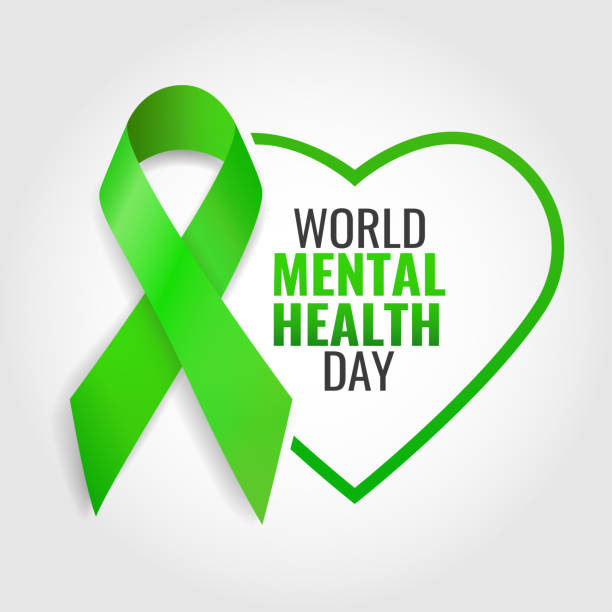The Top 10 Things That Have Improved My Mental Health
I share what works for me in honor of World Mental Health Day
Happy World Mental Health Day! Today is also my 5-year anniversary of writing about mental health and being open about it. I launched my first writing site after experiencing a series of losses including the death of my mother. Leading up to that, I wasn’t living an authentic life, and it made me miserable. I was ready to share my true self with the world.
It’s been quite the ride. Writing about mental health led me to my job as a peer specialist at a psychiatric hospital, the same place where I received care when I was suicidal. It then led me to becoming a speaker for the National Alliance on Mental Illness (NAMI) In Our Own Voice program. My job also provided me with the opportunity to speak with and educate Harvard Medical School students.
When I first started writing about mental health, people often sent me private messages saying, “I have anxiety too” or “My brother has bipolar,” or “My son took his own life, but we don’t tell anybody about it.” While writing publicly about mental health puts me at risk for experiencing stigma, these messages taught me that being vulnerable is worth it, so others feel seen and understood.
People often ask me how I maintain my mental health recovery, so I’m going to share the top 10 things that have improved my mental health. Everyone’s recovery is different, so what works for you may not work for me and vice-versa.
The Top 10 Things That Have Improved My Mental Health
1. Medication
Medication is a very important part of my recovery, especially since bipolar disorder seems to have a biological component. Other conditions may not require medication, so speak with your doctor to see what’s right for you. Medication brings me a sense of normalcy and prevents my symptoms from getting out of control. I’m also better able to operate in the world, work, socialize, etc.
2. Regular therapy
Regular therapy sessions with a therapist who challenges me has been key for me. I had another therapist that listened to me as I vented and responded like a friend would. It wasn’t driving me forward, so I sought care elsewhere and it’s been worth it. I go to therapy once a week and probably wouldn’t go as often if I didn’t have an emotionally demanding job. There have been other times where I’ve gone every other week or just once a month. It’s also helpful to find a therapist that specializes in your conditions and challenges.
3. Learning about my specific conditions and how to best manage them
When I completed an outpatient partial hospitalization program, or PHP, there were several groups that focused on managing your conditions well. I was signed up for groups like, “Bipolar Management,” “Maintaining Good Sleep,” “Coping with Anxiety,” and more. Since then, I’ve read a lot more educational material about bipolar and anxiety and have used what I learned to improve my health. It’s important to understand exactly what you’re dealing with.
4. Not abusing substances
I’ve struggled with substance abuse for most of my life. It never caused me to lose a job, my license, a partner, or a loved one, but it still wasn’t good for me. I abused substances the most during very difficult points in my life, like when my boyfriend (now husband) was serving in Iraq, and after several losses I experienced five years ago. During those times, I felt I needed alcohol and weed to get by, to make me “happy,” and help me relax. But I was really just numbing my feelings because I didn’t want to deal with them or fully process what I’d been through. Drinking alcohol and smoking weed also messed with my medications, rendering some of them ineffective and making me more symptomatic. It’s definitely not worth it for me to abuse alcohol or weed for these reasons.
5. Having a Wellness Recovery Action Plan (WRAP)
I learned about WRAP when I started working at the hospital, and it’s been very beneficial for my recovery. It has several components, but the part I like best is recognizing your early warning signs and taking action to address them. So, for example, I was experiencing a lot of paranoia a year ago that was unusual for me and was getting in the way of my life. That tends to be an early warning sign that things are going downhill for me, based on previous patterns. My action plan was to reach out to my prescriber right away to ask about a medication adjustment, which he agreed with, and I soon felt better. I also reached out to my therapist so she could help me challenge the paranoid thoughts.
6. Support from family and friends
One big reason I’ve remained in recovery is because of support from my family members and friends. For instance, my husband learned all he could about bipolar disorder, anxiety, and how to best help me. My friends understand I have these conditions, and they don’t judge or stigmatize me. Many of them can relate because they’ve experienced similar things. My dad and brother Larry are very supportive, especially since Larry deals with the same health conditions as me. Patients at the hospital often tell me that I’m very, very lucky to have a supportive husband and loved ones because they don’t.
7. Finding work I love
Five years ago, I worked in marketing at toxic workplaces. I was laid off from one job a week after I approached HR about my new boss treating me in a sexist manner. I tried very hard at my next job, spending 12 hours each day working there and commuting, but was fired after three months. I felt ashamed after I was fired and dwelled on it for a while. A friend told me I’d eventually want to thank the person who fired me, and I thought that was impossible. Now, I love my job and report to the best boss I’ve ever had. I also work alongside some of the most caring people I’ve ever known. I love meeting the patients at the hospital each day too. My work gives me confidence because it’s what I was made to do, and I feel like I’m making a difference.
8. Avoiding the news
I have a bachelor’s degree in journalism and used to be very interested in the news. However, the way news is delivered today is much different from when I graduated college. My last mental health crisis was in 2020, and there was a lot of bad news then. I became so wrapped up in the negativity that I was incredibly angry and wanted to end my life. One recommendation I received during that time was to put on the news for just an hour each day to get the information I needed regarding staying safe during the pandemic, and then letting it go. “The 24-hour news cycle will always be there. You won’t miss anything,” I was told. Avoiding the 24-hour news cycle made a world of difference in my life and helps me feel more hopeful about the future.
9. Limiting social media
I used to spend most of my day on social media. Even while I was with friends, I had my phone out and kept checking my notifications as a way to ease my anxiety. But it wasn’t healthy for me because I spent so much time comparing my life to others’ lives. I wasn’t pretty enough. I wasn’t in shape. I didn’t have a job. I didn’t have a successful career. I didn’t go on wonderful vacations. I wasn’t invited to every single gathering. I didn’t have a romantic relationship like my friends had. I would also notice if people stopped liking and commenting on my posts. One was a really close friend, and it was painful to realize that she unfollowed me as I noticed she was commenting on all of our mutual friends’ posts but not mine. I was so wrapped up in this online world that I wasn’t living in the real world. Now, I don’t check my phone at all if I’m out with friends or with family members. I’m a lot more mindful. I also don’t spend much time on social media during the day and engage with positive and humorous content on there instead, which has helped make me a happier person.
10. Journaling
I grew up in an environment where discussing or processing negative emotions was discouraged, so notebooks and journals were a place of refuge for me. I got out all of my negative feelings and wrote about my positive experiences as well. My journaling tends to be more positive now, since I’m in a more positive space. I actually maintain two journals: one that’s multipurpose that has notes and entries, which might be a place where I vent, and a positive journal, where I write about good things that happened recently, things I feel grateful for, a list of my strengths and reasons I’m lovable, and more. It really helps me to write out all the good things that happened recently because I have a tendency to dwell on the negative. I’m often surprised when I list out so many things that went well recently. Journaling is also great because I can look back on what I write each week and bring it to therapy to discuss and process, if needed.
I hope this list helped you. Feel free to comment and tell us what improved your mental health.
Remember, you’re not alone. Treat yourself kindly. Happy World Mental Health Day!





